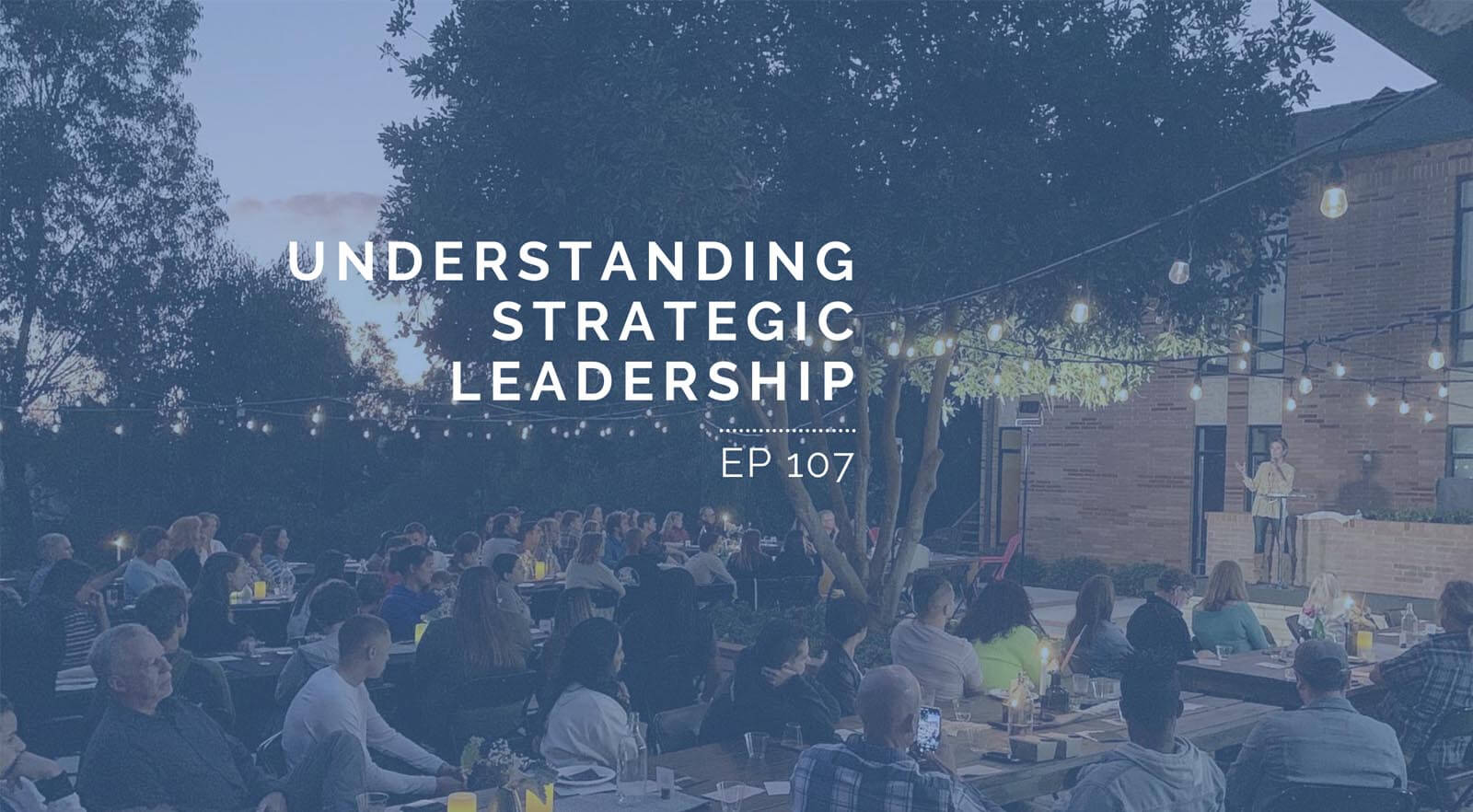In Part 1 of this two-part podcast episode, ministry coach and consultant Ted Vaughn is here to discuss strategic leadership. In this episode, Ted and Mingo explore how both senior and emerging leaders can help each other in developing a long-term vision and making changes in ministry.
Episode Transcript:
As many church leaders are getting started on their ministry goals for 2020, Ted Vaughn encourages you to take an even more long-term perspective on your vision. As a consultant who works closely with churches on their leadership strategies, Ted has great insight into the common patterns that ministries experience.
“Probably the most classic discipleship question I walk into is whether or not evangelism/outreach/mission/external impact and discipleship are integrated into the same conversation,” Ted says. “Most of the time, theologically, philosophically, pastors all believe that they should be absolutely part of the same conversation,” but in practice these areas are often siloed off from each other. This lack of integration makes it harder for churches to develop disciples.
How can those just stepping into a senior leadership role bring all of these areas into alignment? “This could be called brand strategy, this could be called vision clarity,” Ted explains. But it’s about more than just having a catchphrase that describes your vision. “You can’t have strategy if you don’t have, at the top of the funnel, some apostolic conviction and passion.” Once you’ve established clarity around your role and your purpose, you can begin answering some strategic questions. How will you measure and define success for the next 2 years? What will you focus on for these 2 years in terms of discipleship? How do your clarity and vision inform your ministry’s global mission? “There’s a litany of questions that you can start to answer,” says Ted.
Collaboration with other leaders when developing your vision can also be beneficial. However, you’ll need to first define your own values and make them known to those you want to collaborate with. “Every church across the globe is made up of roughly the same ingredients, but they all are different, like rivers. What defines them? What differentiates them? The riverbanks. Your values, your vision – if you don’t give them clarity on your riverbanks, you’re inviting them into something without them understanding to a certain extent how they can add value,” Ted explains.
Bringing young people and emerging leaders into the vision is essential as well. Ted says often, the person who can reach those outside of your congregation is “somebody unbelievably missional, uniquely called to serve on the edge of what the church might be doing. You have to find those people and give them a sandbox to play in, because they will help you stay relevant not just in style, but relevant in ministry tactics.”
However, the infrastructure that senior leadership can provide is also a necessary part of ministry, and there should be a balance between passion and structure when it comes to guiding new leaders. Ted gives the example of requiring that new ministries be led by a team rather than an individual person. Within the team there should be a balance of gifts and skillsets, from those with the long-term vision to those who can execute.
Mingo agrees. “If I don’t build a proper ministry roadmap and show people where they exist in that spectrum, you lose people based on other interests,” he says. So, for those recently thrust into a new ministry and trying to find the riverbanks to share with other leaders, where to begin?
“This is where oftentimes we go wrong,” says Ted. “I think that pastors have an assumption that somebody in their church who has an apostolic passion or vision for ministry, it must somehow have to fit in their current church ministry. Frequently it doesn’t.” As a senior pastor, you have to consider whether it’s best to release this person to another church. Avoid assuming that just because someone is currently at your church, they’re meant to stay there.
“That leader that has started here could very well need to be transplanted to different soil,” Ted says, “because in that soil they’ll flourish and they’ll add tons of value to the garden. God will use people no matter where they’re planted, but I think sometimes we fail to help people reach their peak because we’re afraid to transplant them or lose them.”
Listen, Subscribe and Review
Share on facebook
Share on google
Share on twitter
Share on linkedin
